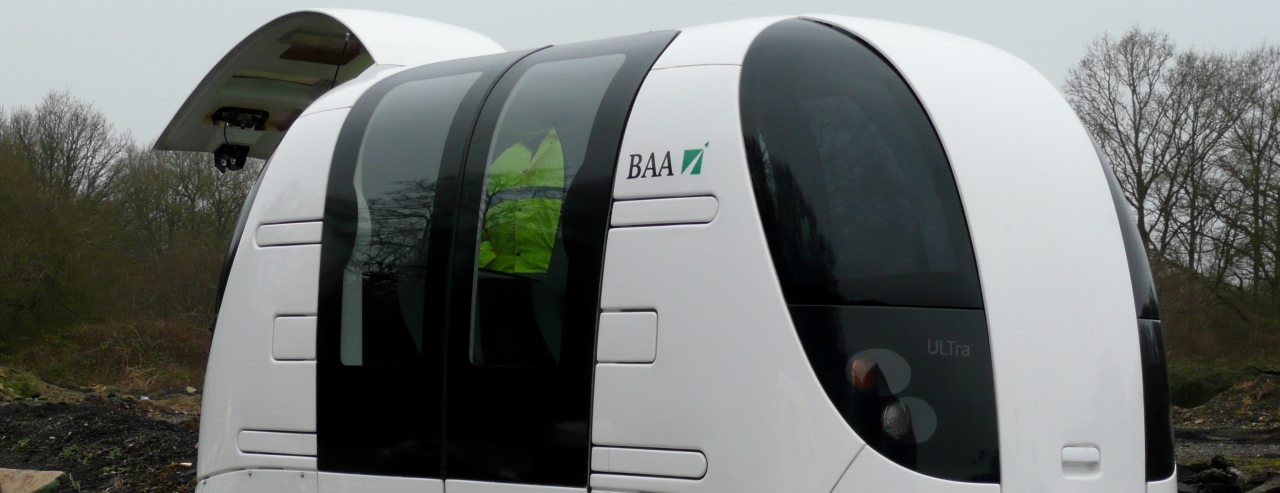The UK Department of Transport has announced it will publish a new code of practice in 2015 to allow the testing of autonomous cars to go ahead in designated areas, in a bid for the UK to become a world leader in driverless technology.

The Government has promised a full review of current road-use legislation by the summer of 2017. This will involve rewriting the Highway Code and adjustments to MOT test guidelines, potentially taking into account whether a higher standard of driving should be demanded of automated vehicles. It is also providing £19m to launch four driverless car schemes in four UK locations, including a fully autonomous shuttle in Greenwich, London, and a BAE System-developed Wildcat vehicle, which will be tested in Bristol.
The US was the first country to introduce legislation to permit testing of automated vehicles, adds a BBC report.
Signal spotted by Ariel Muller
Image ULTra PRT / BAA










